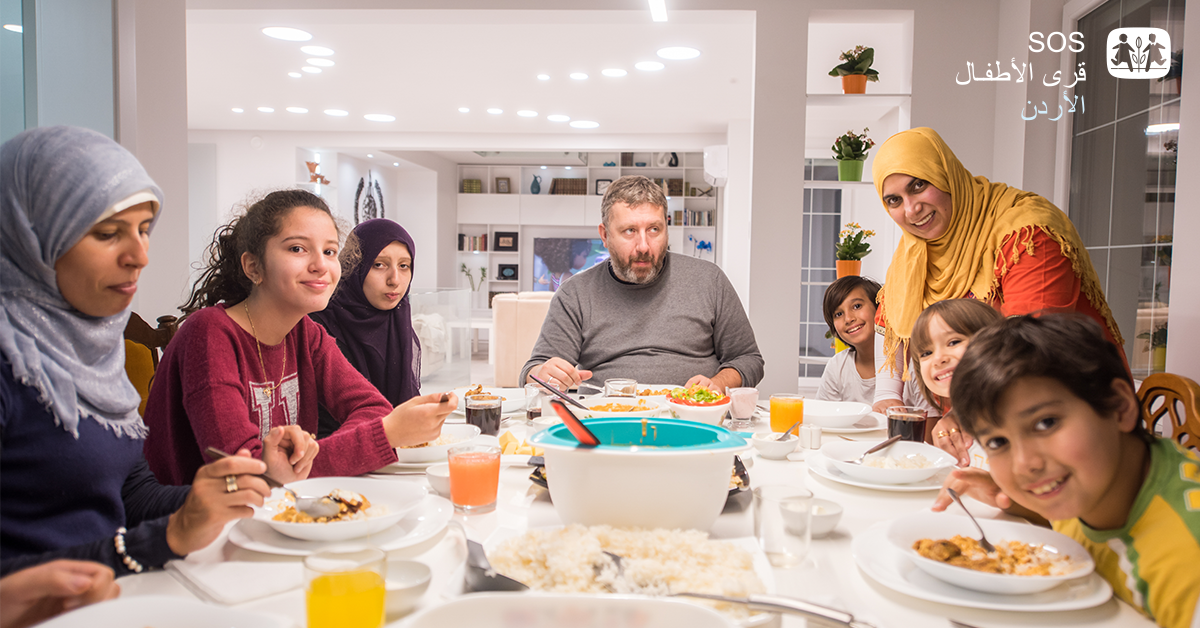How to Maintain Your Health & Your Children's Health in Ramadan?
Dalia Khirfan

The blessed month of Ramadan is a month of fasting and worship. During this month, the body needs special care and attention so that you can fast in good health without any health problems.
Here are some tips to help you maintain your health and physical well-being during the month of Ramadan:
1. Eat Suhoor: It is essential to eat Suhoor (pre-dawn meal) regularly during the month of Ramadan. Suhoor provides the body with the energy and nutrients necessary for fasting throughout the day. It is recommended to include dates and yogurt in your Suhoor meal, following the tradition of our Prophet Muhammad (peace be upon him).
2. Break Your Fast: Break your fast after sunset and avoid delaying it, as this helps restore the energy lost during the day. It is also recommended to start your Iftar (breaking the fast) with dates, as it is a tradition of our Prophet Muhammad (peace be upon him).
3. Stay Hydrated: Drink an adequate amount of water distributed throughout the permissible time after Iftar to prevent dehydration. However, it is not advisable to drink large amounts of water during Iftar to avoid digestive discomfort.
4. Avoid Fatty Food and Sweets: It is important to avoid consuming large quantities of fatty food and sweets during Ramadan, as they can lead to weight gain, affect overall health, and increase feelings of fatigue and exhaustion after Iftar.
5. Sufficient Sleep: It is essential to get an adequate amount of sleep at night so that the body can prepare for fasting and worship during the day.
6. Avoid Non-Natural Juices, Carbonated Drinks, and Stimulants: It is recommended to avoid these beverages due to their high sugar content, harmful preservatives, and stimulants like caffeine found in coffee, which can lead to dehydration.
7. Engage in Regular Exercise: Regular exercise is advised to strengthen the body and maintain physical fitness.
8. Consume Beneficial Vitamins and Minerals: Eating vegetables and fruits rich in vitamins and minerals essential for health is recommended to help the body cope with fasting. For example, potassium found in bananas helps alleviate feelings of hunger and thirst during fasting.
9. Avoid Smoking: It is important to refrain from smoking during Ramadan, as it can increase feelings of stress and fatigue and raise the risk of serious and chronic diseases.
10.Additionally, you should listen to your body and stop fasting if you feel extreme fatigue or in case of a serious injury, God forbid. It is also important to avoid direct exposure to strong sunlight for extended periods to prevent heatstroke or dehydration.
11.Finally, personal hygiene should be taken care of, and general health should be maintained during Ramadan, as our Prophet Muhammad (peace be upon him) said: "Cleanliness is half of faith."
12 Tips to Help Your Child Fast for the First Time
Ramadan is a great opportunity to teach children many healthy nutritional and ethical habits, such as self-control, moderation, avoiding excess, and feeling grateful. However, it is essential to start with children wisely and flexibly.
- Here are the most important tips for your child to enjoy a healthy fast:
1) Ensure that the child is free from illnesses such as diabetes, high blood pressure, malnutrition, and anemia, and it is advisable to conduct some medical examinations.
2) Gradual progression... Do not start fasting for a child under the age of ten all at once but gradually, starting with fasting until noon, then until the afternoon, and finally until sunset.
3) No suhoor, no fasting... Make sure your child consumes a nutritious suhoor, as much as possible, such as carbohydrates, milk, yogurt, legumes, and eggs, along with thirst-quenching fruits like watermelon, cantaloupe, oranges, apricots, and do not forget a salad dish.
4) Monitor them during the day... If they feel extreme thirst, hunger, dizziness, lack of concentration, excessive sweating, or lack of urination, do not let them continue the day and quickly give them water and juice.
5) Healthy iftar... Start iftar with dates and milk, then soup, followed by a dish of carbohydrates (rice, bread, or pasta...) and animal protein (meat, poultry, or fish), cooked and raw vegetables, and a cup of juice.
6) Between iftar and suhoor... It is necessary to drink water every half hour or three-quarters of an hour, along with natural juices, herbal drinks (hibiscus, tamarind...), fresh and dried fruits, and it is okay to consume homemade sweets moderately, not daily.
7) Beware of the following: drinking carbonated beverages, excessive consumption of pickles and salt, excessive sweetening of juices, and fast food.
8) Replace sweets with fruit salad, fruit pudding (cooked fruit + yogurt + starch), and dried fruits.
9) Avoid physical exercises during Ramadan days and replace them with mental exercises such as reading.
10) Ensure that your child takes a nap.
11) Let them participate in food preparation.
12) It's okay to reward your child upon completing fasting, but don't always make the rewards food-related. Try to make Ramadan a time of joy, happiness, and good memories, so fasting becomes associated with positive experiences in their mind, and they eagerly anticipate it every year.